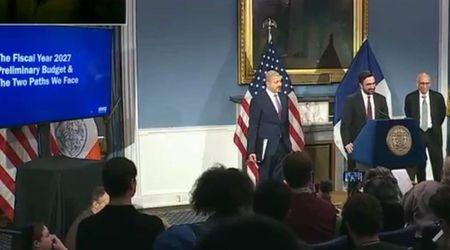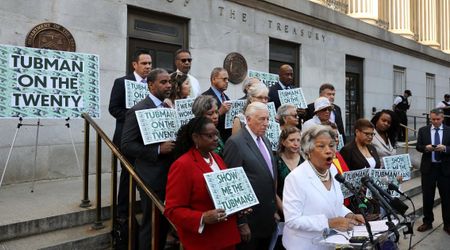Survey finds 70% of voters believe the Democratic Party is ‘out of touch’ with their concerns

WASHINGTON, DC: A new report from a left-leaning group reveals that citizens across the country increasingly feel the Democratic Party has lost touch with their priorities.
According to the New York Post, the report found that 70 percent of voters believe the party is “out of touch” with ordinary Americans, saying it focuses too heavily on issues such as “fighting climate change” and “protecting the rights of LGBTQ Americans.”
The figure has risen by double digits over the past decade, underscoring growing concerns that the party is drifting away from the issues that matter most to voters.

New survey finds Democrats ‘out of touch’ with issues that matter to voters
A new report titled Deciding to Win, produced by the center-left group Welcome (also known as the Welcome Democracy Institute), suggests that the Democratic Party is increasingly losing support from voters who prioritize border security and crime reduction over issues that feel less connected to their daily lives.

According to the New York Post, the study found that a growing share of Americans believe the Democratic Party has become “out of touch” with voters’ priorities. A table in the report, compiled using averages from public polls across recent elections, showed a rising percentage of voters who viewed the Democratic presidential nominee as “too liberal.”
The report further notes that as the party’s focus has shifted, more voters now see Democrats as disconnected from key concerns.
“Voters see Democrats as insufficiently prioritizing issues like the cost of living, the economy, immigration, health care, taxes, and crime, which are all top concerns for voters,” the Welcome group’s survey stated.

t added, “Going forward, it will be critical for the party to reduce the gap between what voters want Democrats to focus on and what voters think. Both in communications and in approach to governance, [Democrats must] place less emphasis on issues like climate change, democracy, abortion, and identity and cultural issues.”
According to a survey of more than 500,000 citizens, most respondents said the party should focus on “protecting Social Security and Medicare” (82 percent), “lowering everyday costs” (79 percent), “making healthcare more affordable” (74 percent), “creating jobs and growing the economy” (74 percent), “cutting taxes for the middle class” (66 percent), “reducing crime” (56 percent), and “securing the border” (53 percent).
The data also revealed significant geographic and demographic shifts. “Places where race and class intersect have seen particularly large declines in Democratic vote share,” the group noted. For example, in Starr County, Texas, a community where more than 95 percent of residents are Hispanic and the poverty rate is triple the national average, Democratic vote share fell from 86 percent in 2012 to 42 percent in 2024.

The poll also found that voters view the Democratic Party as 26 percent more focused on illegal immigrant rights and 23 percent more focused on LGBTQ rights than necessary. Conducted between November 13, 2024, and June 18, 2025, the survey showed that support for Democrats has declined significantly among working-class and minority voters since 2012, especially among moderates and conservatives within those groups.
Interestingly, the same report noted that respondents rated the party as being 21 percent more focused on border security than needed, highlighting a widening divide between public perception and party messaging.

November 4 vote to signal shifting voter priorities ahead of 2026
As voters across the country prepare to cast their ballots on Tuesday, November 4, the upcoming elections are expected to serve as a key indicator of where the nation stands politically. Major contests, including the Virginia and New Jersey gubernatorial races, California’s redistricting vote, and the New York City mayoral election, will be closely watched for signs of voter sentiment heading into 2026.
For Democrats, the findings from the Welcome report serve as both a warning and a reminder of the need to realign with voter concerns ahead of a pivotal election season.
This article contains remarks made on the Internet by individual people and organizations. MEAWW cannot confirm them independently and does not support claims or opinions being made online










